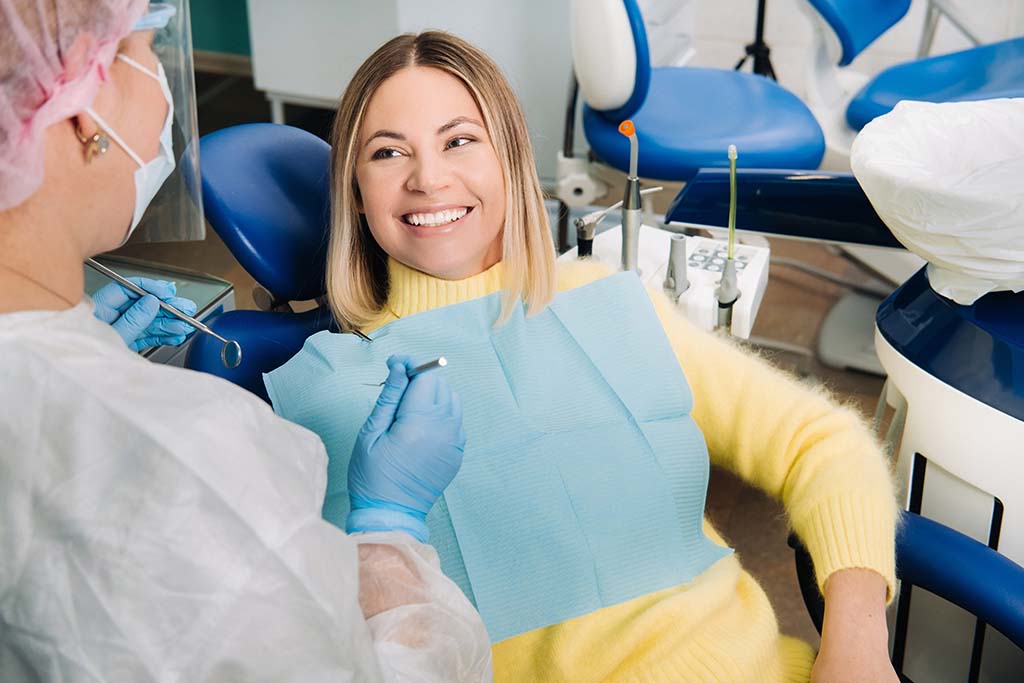If you are experiencing dental problems like pain due to wisdom teeth, jaw misalignment, or overcrowded teeth, you might wonder which dental professional to visit for the appropriate treatment. Dental professionals help fix teeth problems, improve aesthetics and alleviate painful dental conditions.
With so many different specializations, most find it somewhat difficult to choose the right dental professional for their specific condition.
Dental Specialties
Below is a list of dental specializations recognized by the American Dental Association (ADA):
- Endodontist
- Periodontist
- Prosthodontist
- Oral and maxillofacial surgeon
- Orthodontist
- General Dentist
In this article, we take a closer look at orthodontists vs oral surgeons and how they differ.
How Do Orthodontists and Oral Surgeons Differ?
Although orthodontists and oral surgeons are both dental specialists that help patients maintain their oral health. But they do so in different ways.
Basic Difference
When it comes to an oral surgeon vs. orthodontist, the main difference is the nature of the treatments they provide.
An orthodontist treats crooked or crowded teeth and disparities of facial muscles and bone. They typically straighten teeth and align jaws using braces, aligners, retainers, headgear, and other orthodontic tools.
On the other hand, oral surgeons carry out major surgical procedures on the face and jaw. In short, an oral surgeon specializes in surgical intervention to restore damaged teeth and jaws.
Education
Both orthodontists and oral surgeons complete a bachelor’s degree and four years of dental education before becoming dental specialists. They are required to study radiology, applying local anesthesia, dental diseases, dental anatomy, and more.
After completing dental school, dental students may specialize in their preferred specialty.
Oral and maxillofacial surgeons acquire an in-depth knowledge of dental anatomy and jaw and facial deformities. They undergo additional training in a hospital residency program lasting four to six years, during which they learn details about emergency medicine, oral disease, and local anesthesia.
Oral and maxillofacial surgeons are also well-versed in the fields of oral surgery, plastic surgery, ear/nose/throat treatment (collectively called otolaryngology), and corrective jaw surgery.
After dental school, aspiring orthodontists work under the supervision of a licensed dentist before undergoing a two-year residency focusing on their specialty.
During residency, orthodontists focus on studying facial imbalances, discrepancies in the growth of upper and lower jaws, and conditions that cause crooked teeth. They also learn the application of orthodontic braces and retainers.
Field of Expertise
Oral surgeons work with a team of surgeons in managing facial trauma, cleft palate and cleft lip cases, common oral surgical issues, and facial cosmetic surgery.
An oral and maxillofacial surgeon works in a hospital environment to surgically treat a patient’s teeth and related soft tissue abnormalities. That includes joint dysfunction, head and neck cancer, and sleep apnea.
An orthodontist typically specializes in improving a patient’s facial aesthetics by moving the misaligned teeth gradually through non-surgical interventions like braces.
Unlike an oral surgeon, the dental practice of an orthodontist is performed in a clinical setting.

Conditions Treated: Oral Surgeon vs. Orthodontist
Oral surgeons and orthodontists treat various conditions and often collaborate when treatment requires a combination of surgery and orthodontic treatment, like facial and jaw deformities.
Oral Surgeons
Oral surgeons utilize surgical skills for different surgical procedures, including:
Extractions
Surgical specialists perform complex tooth extractions. Treating impacted wisdom teeth requires the skills and expertise of an oral surgeon.
Head and Neck Cancer
An oral surgeon has the correct knowledge and skill set to excise cancers of the head and neck region.
Squamous cell carcinoma (SCC) is life-threatening cancer that an oral surgeon can treat via maxillofacial surgery.
Trauma Management
Roadside accidents, projectile injury, and gunshot wounds that cause trauma to the face require oral surgeries. Facial trauma surgery involves oral and maxillofacial surgery paired with reconstructive surgery.
An oral surgeon also manages hard tissue (bone) fractures and soft tissue injuries.
Joint Surgery
Severe Temporomandibular joint (TMJ) dysfunction cases require surgical intervention.
Aesthetic Surgeries
Oral and maxillofacial surgeons trained to correct the abnormally grown chin, jaw, or nasal bones. Genioplasty and rhinoplasty are bone corrective procedures combined with plastic surgery to reconstruct the facial profile.
Cleft Lips and Palates
Maxillofacial surgeons correct congenital deformities such as cleft lips and palate via surgery.
Dental Implants
Placing dental implants requires following a surgical procedure. Oral surgeons and prosthodontists possess the knowledge to place implants in the bone.
Sleep Apnea
Severe cases of jaw undergrowth and nasal obstruction can interfere with normal breathing mechanisms. If left untreated, breathing problems can cause breathlessness during sleep (sleep apnea).
Dental surgeons correct the underlying cause of breathlessness.
Orthognathic Surgery
It is a corrective jaw surgery that realigns the upper and lower jaw and can help improve your speech, biting, and chewing.
Orthodontists
An orthodontist specializes in straightening teeth and treating associated complications like chewing, speech, and bite issues. Orthodontists place fixed brackets on patients’ teeth and gradually move them into a better alignment.
Orthodontic treatment can address the following conditions:
Overcrowding
A small jaw or abnormally large teeth can cause overcrowding of the teeth. An orthodontist helps by properly aligning teeth by applying individual braces. Treatment plans vary for different individuals based on the severity and type of dental deformities.
Spaces Between Teeth
Orthodontists treat spaces and gaps in the teeth using restorative and conservative treatments like braces, veneers, bonding, etc.
Overbite
Protruding upper front teeth are referred to as an overbite, which an orthodontist can correct by using braces.
Open Bite
Open bite refers to the incomplete closure of the mouth, where the upper and lower teeth do not make contact due to a gap between them. Open bite is of two types, i.e., dental and skeletal. Dental open bite is corrected with orthodontic treatment, while skeletal open bite needs oral surgery.
Underbite
Similarly, an overgrown mandible or retrusive maxilla leads to an underbite.
Impacted Teeth
An oral surgeon helps extract an impacted tooth, while an orthodontist helps with tooth eruption in the oral cavity.
Some impacted teeth may need surgical exposure from an oral surgeon while the pulling of the tooth is carried out by an orthodontist.
Genetic Syndromes
Various childhood disorders and genetic deformities like Treacher-Collins syndrome can affect the jaws, teeth, and facial muscles. Craniofacial surgery or aligning the teeth can help treat the conditions.
Conclusion
Oral surgeons and orthodontics help you restore a beautiful smile by treating teeth and jaw issues. However, they are distinct dental professions.
Simply put, an oral surgeon performs surgical procedures on your teeth, jaws, and surrounding bones and tissues. In contrast, an orthodontist’s scope of duties mainly includes correcting misaligned or crowded teeth using braces.
Regardless of the dental problem, you must visit your orthodontist without delay for a timely diagnosis. Even if the problem warrants an extensive treatment plan like surgery, your orthodontist will refer you to an oral surgeon.

